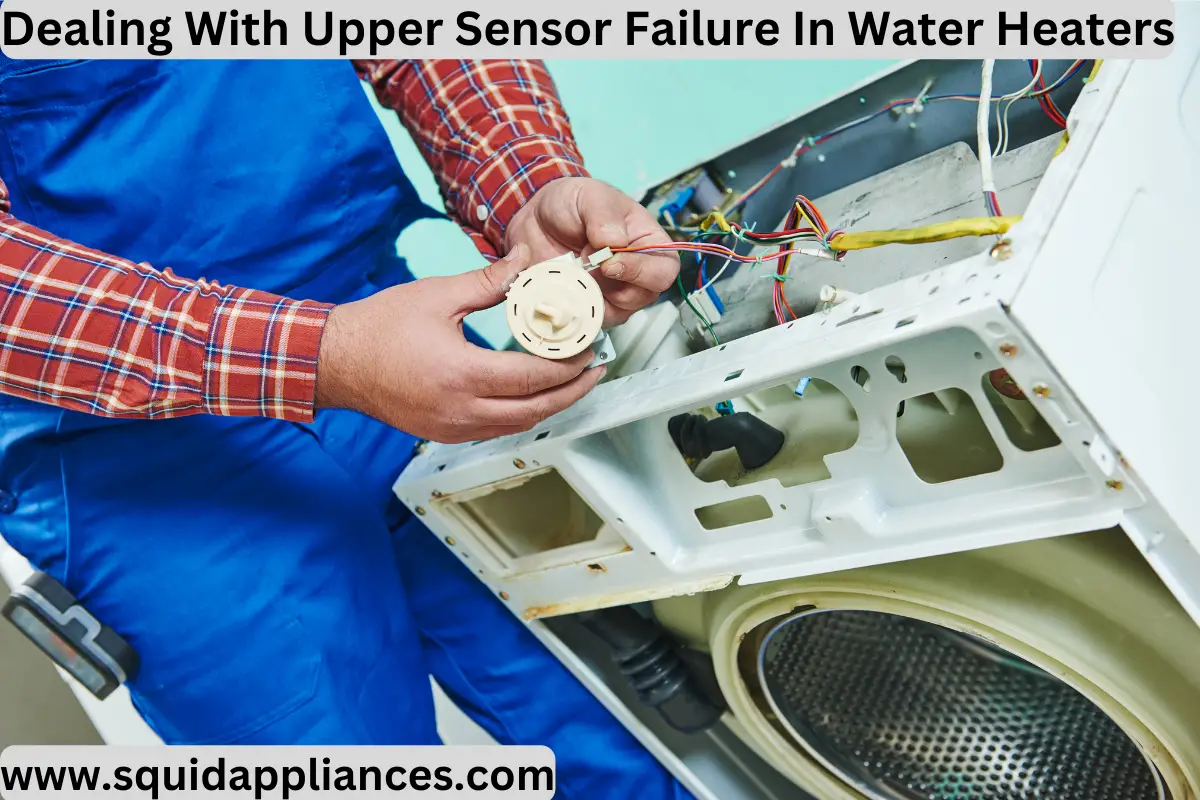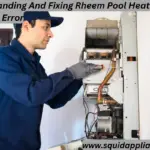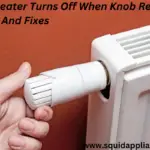Dealing with upper sensor failure in water heaters can be a frustrating and costly problem. As someone who has encountered this issue firsthand, I understand the importance of addressing it promptly and effectively.
In this article, I will share my knowledge and expertise on the common causes, signs, diagnosis, fixing methods, and prevention techniques for upper sensor failure in water heaters.
Join me in exploring effective strategies for dealing with upper sensor failure in water heaters!
How can you Deal With Upper Sensor Failure In Water Heaters?
This comprehensive guide tackles upper sensor failure in water heaters, covering causes, signs, diagnosis, fixing techniques, and prevention measures. With steps on diagnosis, fixing, and prevention, it empowers readers to address sensor failures promptly, extending their water heater’s lifespan while minimizing expenses and inconvenience.
Key Takeaways
- Upper sensor failure in water heaters can be frustrating and costly.
- Common causes of upper sensor failure include corrosion, electrical issues, and wear and tear over time.
- Signs of upper sensor failure include inconsistent water temperature, no hot water, or scalding hot water.
- Fixing an upper sensor failure involves replacing the faulty sensor and ensuring secure wiring connections.
Common Causes of Upper Sensor Failure
Now, let’s dive into the common causes of upper sensor failure so you can understand why it happens and how to prevent it in your water heater.
One of the main reasons for upper sensor failure is a faulty thermostat. When the thermostat malfunctions, it can cause the upper sensor to stop working properly.
Another cause could be corrosion or mineral buildup on the sensor, which can prevent it from accurately detecting temperature changes. Regular maintenance and cleaning can help prevent these issues and avoid the need for costly upper sensor replacements.
Signs and Symptoms of Upper Sensor Failure
Imagine finding yourself in a situation where you’re left guessing whether your water is hot enough, and the signs and symptoms of a potential issue are becoming more evident. Common signs of upper sensor failure in water heaters include inconsistent water temperature, no hot water at all, or scalding hot water.
To troubleshoot this problem, start by checking the thermostat settings and making sure they’re correct. Additionally, inspect the wiring connections to make sure they’re secure and not damaged.
Diagnosing Upper Sensor Failure in Water Heaters
To diagnose when the upper sensors in a water heater aren’t functioning properly, it’s important to first check thermostat settings and ensure secure wiring connections.
Check thermostat settings:
- Ensure the thermostat is set to the appropriate temperature.
- Make sure that there isn’t any debris or buildup obstructing the upper sensor.
Secure wiring connections:
- Inspect all electrical connections leading to the upper sensor.
- Tighten any loose connections or replace damaged wires.
Troubleshooting upper sensor issues can help identify the problem and determine if replacing faulty upper sensors is necessary for proper water heater functionality.
Fixing Upper Sensor Failure in Water Heaters
If your water heater is experiencing issues with the upper sensors, you can rectify the problem by following a few simple steps.
To begin troubleshooting upper sensor failure, start by turning off the power supply to the water heater.
Next, locate the faulty upper sensor and carefully remove it from its position. Replace it with a new sensor of the same type, and reconnect any wires or connections.
Finally, restore power to the water heater and test for proper functionality.
Preventing Upper Sensor Failure in Water Heaters
Ensure your water heater works flawlessly by implementing these simple tips to prevent any issues with the upper sensors.
Upper sensor failure can lead to water damage and costly repairs. To prevent this, regularly inspect the sensors for any signs of corrosion or damage. Clean them carefully using a soft brush or cloth.
Additionally, check the wiring connections and ensure they’re secure. If you notice any abnormalities, troubleshoot the system promptly to avoid further complications.
Frequently Asked Questions
Can upper sensor failure in water heaters affect the performance of the lower sensor?
Yes, upper sensor failure in water heaters can affect the performance of the lower sensor. Troubleshooting techniques should be used to identify and fix the issue, ensuring both sensors are functioning properly for optimal performance.
What is the average lifespan of an upper sensor in a water heater?
The average lifespan of an upper sensor in a water heater is typically around 5-10 years. Replacement cost can vary depending on the specific model and brand of the sensor.
Can a water heater still function without the upper sensor?
Yes, a water heater can still function without the upper sensor, but its efficiency may be affected. Without the upper sensor, troubleshooting water heaters becomes more difficult as it plays a crucial role in regulating temperature and preventing overheating.
Are there any safety concerns associated with upper sensor failure in water heaters?
Potential causes of upper sensor failure in water heaters include corrosion, electrical issues, and sensor malfunction. To prevent this, regular maintenance, such as flushing the tank and checking the wiring, is necessary. Safety concerns arise from potential overheating or lack of hot water supply.
Can a water heater’s warranty cover the replacement of a failed upper sensor?
Yes, water heater warranties can cover the replacement of a failed upper sensor. The warranty coverage for sensor replacement ensures that the cost of replacing the upper sensor is included in the warranty terms and conditions.
Conclusion
In conclusion, dealing with upper sensor failure in water heaters is a crucial task for homeowners. By understanding the common causes and recognizing the signs and symptoms of this issue, one can effectively diagnose and fix it.
Taking preventive measures to avoid upper sensor failure, such as regular maintenance and checking for any potential issues, is also essential.
With proper knowledge and proactive actions, homeowners can ensure their water heaters function efficiently and avoid any inconvenience or costly repairs in the long run.






